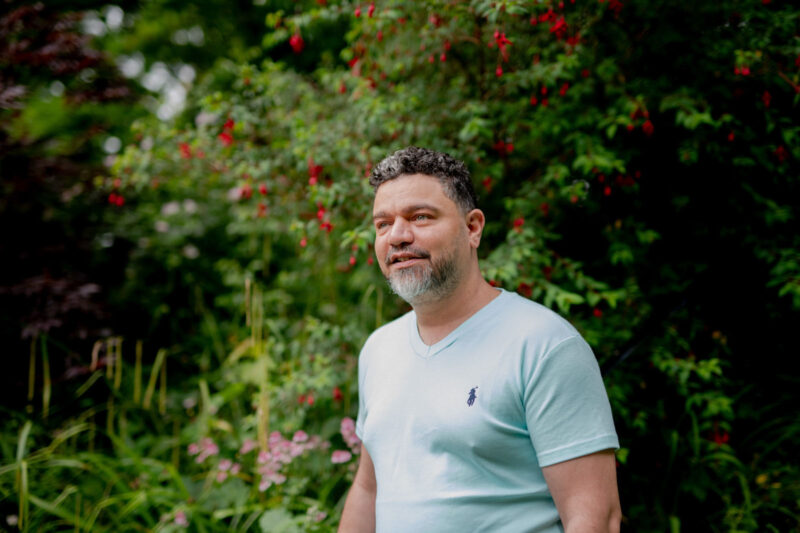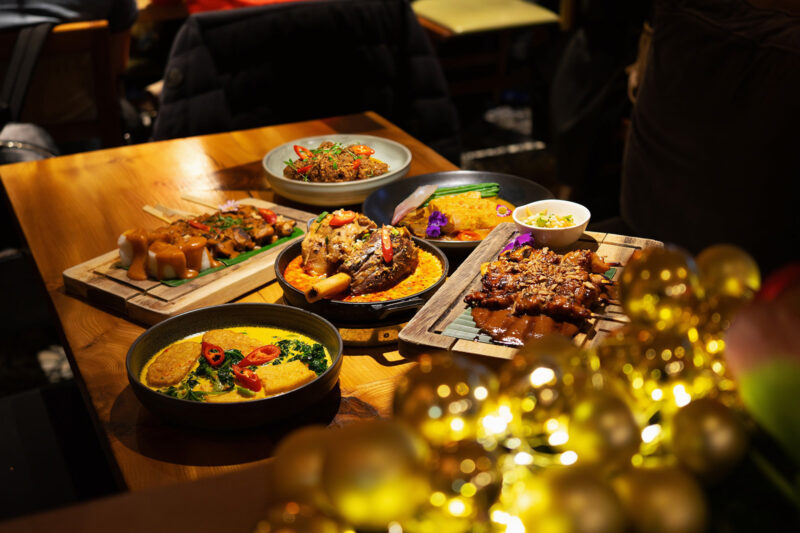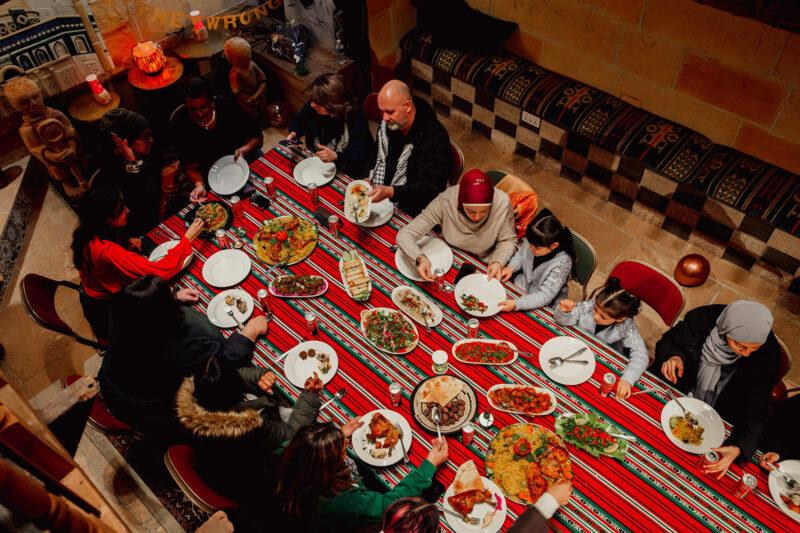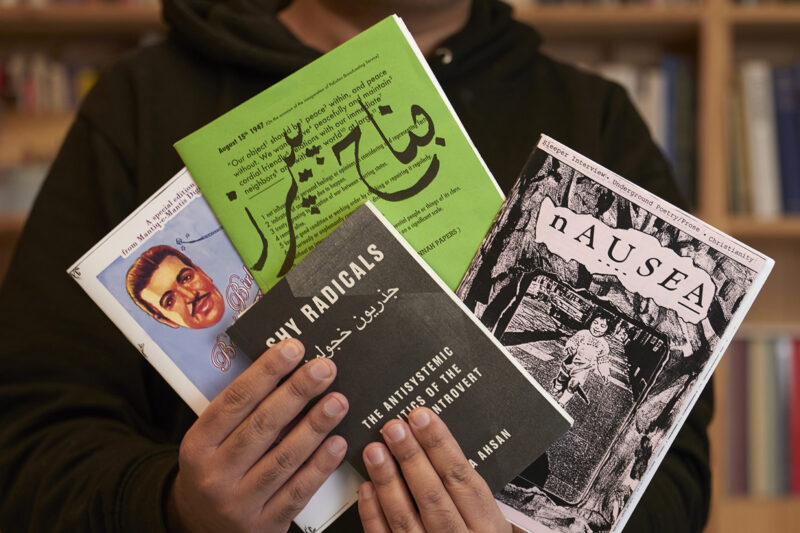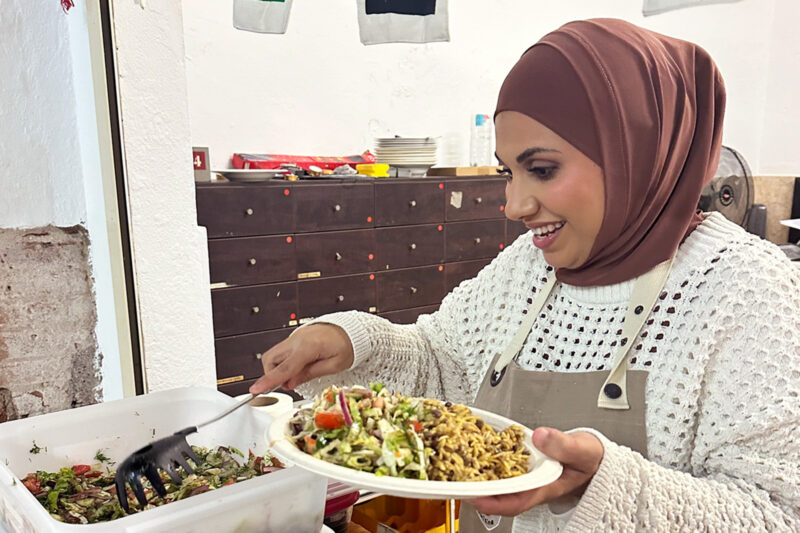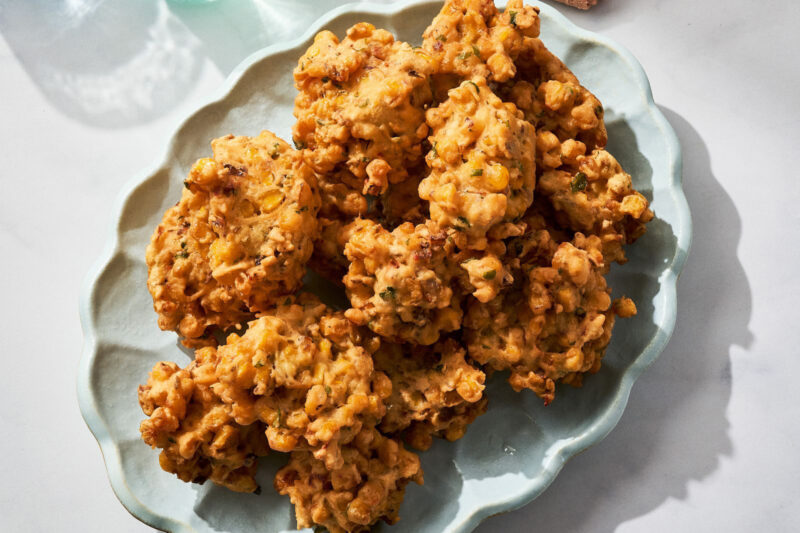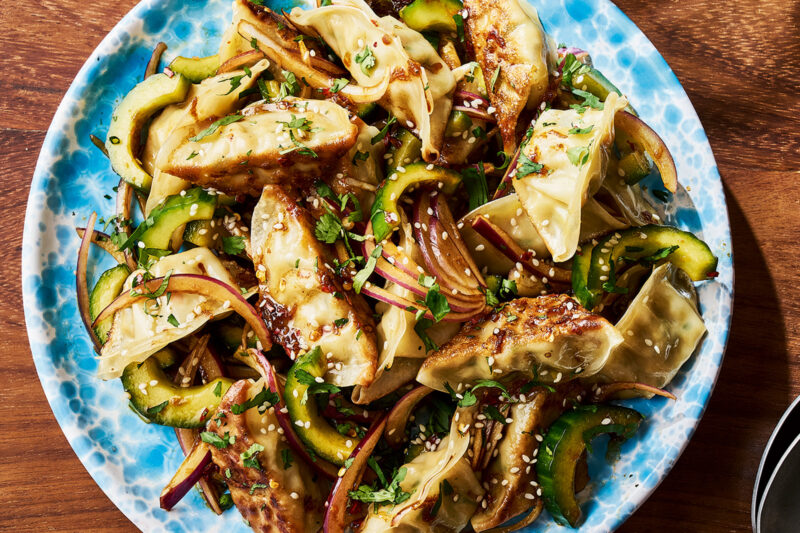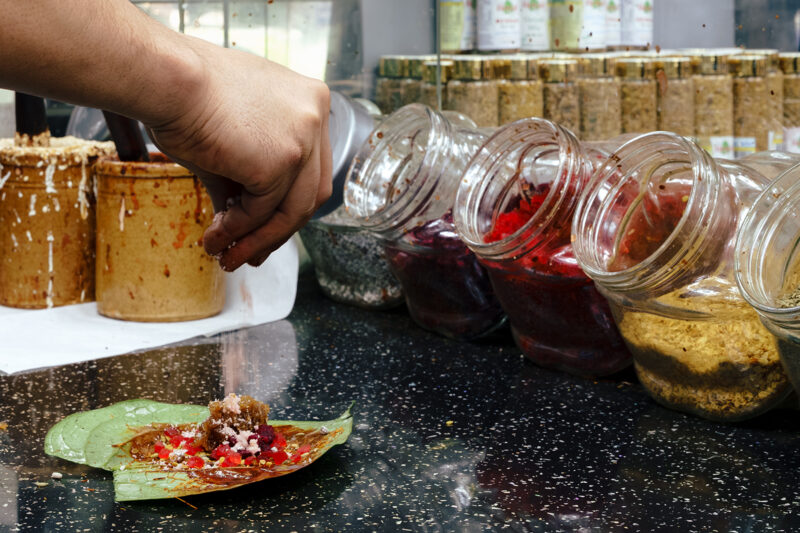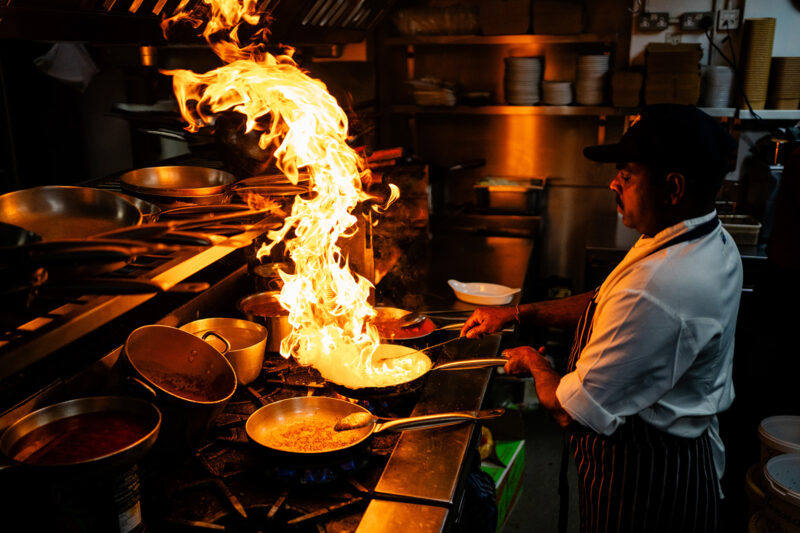Middle Eastern food has put down roots in Yorkshire
Once famous for being hotspots of South Asian cuisine, cities including Bradford and Leeds have embraced the bold and bright flavours of the Levant
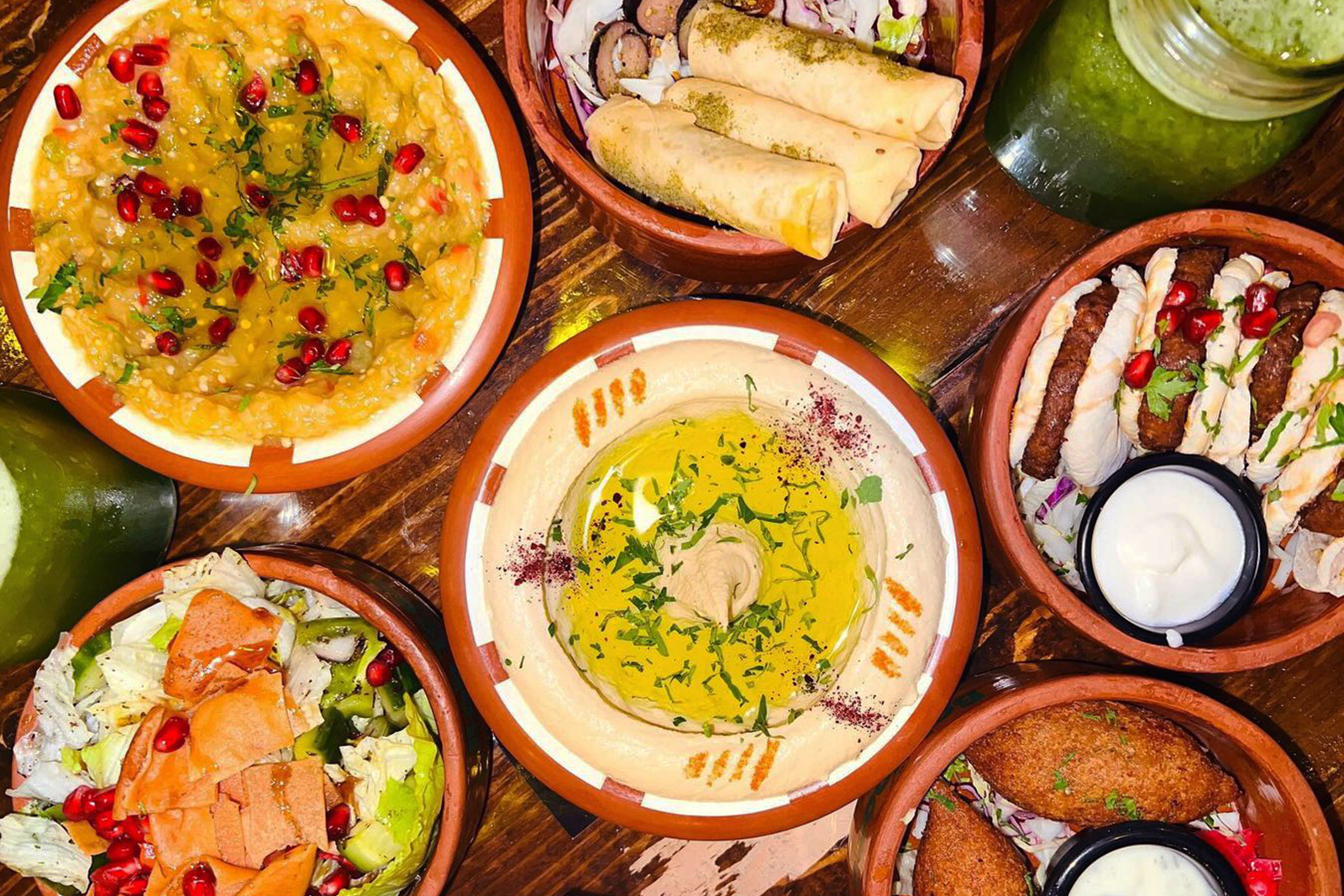
As a long-established centre of the UK Pakistani community, Bradford has built a reputation as the curry capital of the UK. Now, though, kormas and karahis are competing with an array of delicious Syrian dishes, from knafeh to malfouf (cabbage rolls filled with rice and lamb).
In 2015, at the height of the Syrian civil war, all 21 councils in Yorkshire and the Humber region signed up to the Home Office resettlement scheme for refugees from the country. Nearly 10 years later, Bradford, Leeds, York and Harrogate have sizeable Syrian communities and restaurants, cafes and market stalls have sprung up serving up beloved Levantine cuisine to a growing number of hungry customers across the region.
Situated on a busy road in east Bradford, Bab Tooma stakes a claim to be the first authentic Syrian restaurant in West Yorkshire. Originally opened in 2016 by Eyad Charbatji and Qusay Amer, who met as students in Leeds, this flagship branch now has two sister establishments in York and Leeds. Named after a neighbourhood in the Old City of Damascus, the restaurant leaves visitors in no doubt of its roots.
Inside, every detail is designed to transport you to the historic courtyards of the Syrian capital. Colourful stained-glass lanterns dot the walls, faux vine leaves cover the ceiling and Arabic music plays alongside the gentle cascading of a water feature at the centre of the room.
Taking our seats, we order a selection of classic dishes from the lengthy menu. Before any of them arrive, complimentary bowls of lentil soup are rushed out from the kitchen, silky, based on a rich stock and enlivened with a squeeze of lemon. Then comes a smoky, chunky, tahini-rich baba ganoush, topped with pomegranate seeds. The hummus, meanwhile, is velvet smooth and perfectly balanced. Better still, all starters are served with fresh-baked circular pitta breads, perfect for scooping up all manner of dips and salads.
For the mains, the charcoal-grilled half chicken is succulent and juicy, thanks to expert cooking and a delicious vinegar and lemon marinade. The karen yarek — grilled aubergine stuffed with minced lamb, topped with tomato sauce and almonds on a bed of rice — sits under the chef’s specials and I’m pleased to see something that I don’t usually find at my Syrian locals in London. Unfortunately, when it arrives, the aubergine is somehow sticky and viscous, while the meat and sauce lacks seasoning.
That disappointment aside, Bab Tooma has clearly won many local hearts. At 9pm, it’s packed with families, friends and couples on dates from every demographic possible.
On the opposite side of the city, Kunafa Tea is another Syrian business that has cultivated a loyal and growing clientele. Opened in 2021 by Abdulrahman Mkia, Anas Alhabi and Hisham Al-Mayhayni, this sleek yet cosy restaurant offers a contemporary take on traditional Damascene design. Arches are painted in striped terracotta and brown, nodding to Umayyad masonry, and gold pots of faux jasmine — synonymous with Damascus summer evenings — adorn the walls.
The space has two sections: one informal area with wooden bench seating for customers seeking desserts only; the other, larger and reserved for patrons ordering full meals. It turns out that my favourite part of the meal is the starters. We opt for the batata harra, spicy fried potato cubes with a satisfying kick of heat and a lemony tang. Most importantly, the garlic is not overpowering, which is a common failing of this dish. The fried halloumi is also perfectly executed: light, crispy and moreish. The falafel and cheese rolls, meanwhile, come freshly fried to order. The shish tawook, beautifully charred from the grill and succulent on the inside, is served with house-made shatta — a Levantine fermented chilli sauce — and fries dusted with warm spice.
Given the restaurant’s name, dessert is a simple choice. The menu includes a cream knafeh, filled with soft cheese and drizzled with milk and white chocolate. I keep it traditional with the “original” version, which arrives oozing cheese and topped with syrup and crushed pistachios — the perfect accompaniment to a glass of strong black Arabic tea. Nearly every customer I see ends their meal with kunafa and many are so familiar with the menu they do not need to consult it before ordering. With that kind of popularity, no wonder the team are putting in the final touches on a new, larger Leeds branch.
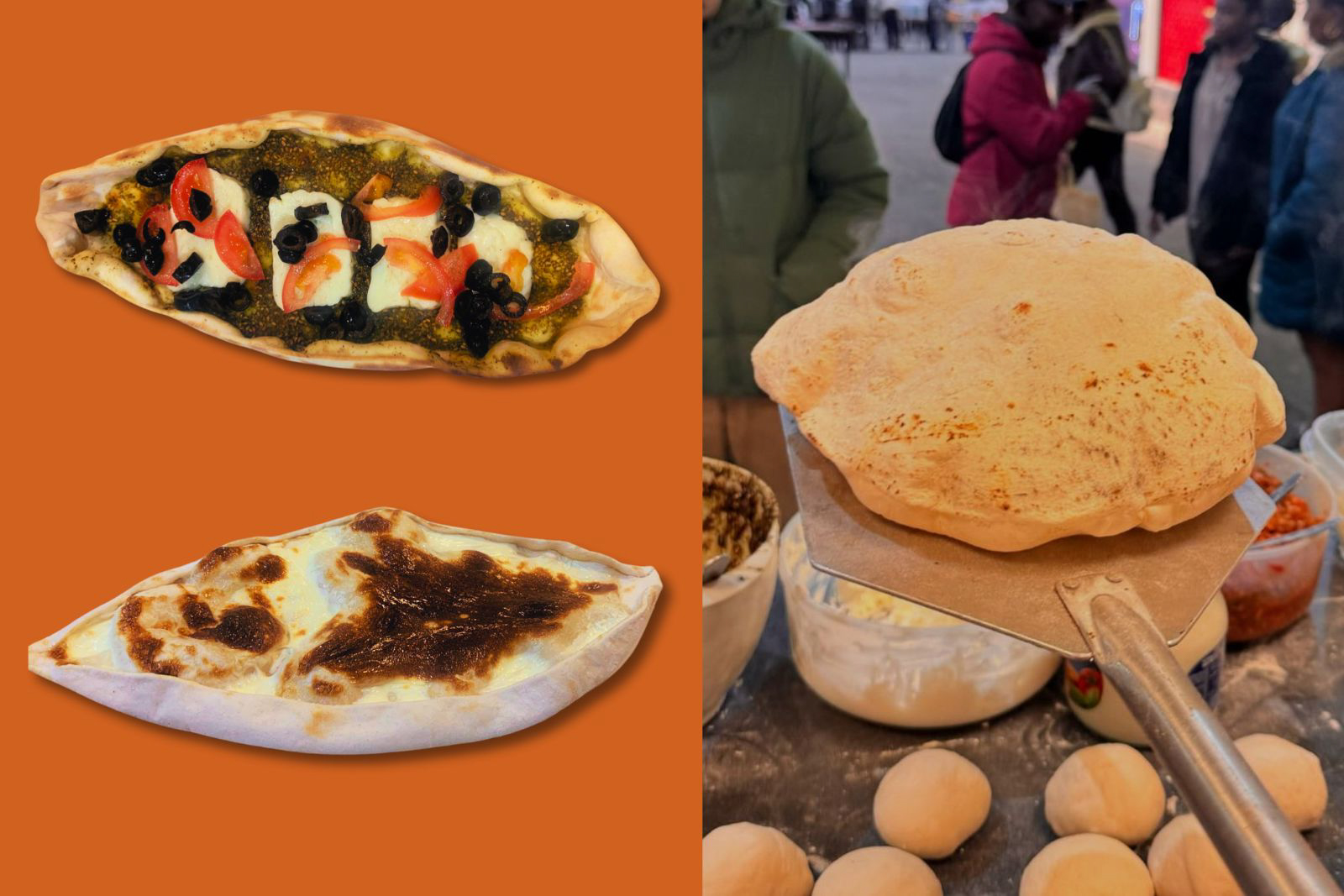
Set up in 2012 by Kurdish husband and wife team Hassan and Menice Kelesh, from north-east Syria and south-eastern Turkey respectively, Eastern Oven in Kirkgate Market is a firm Leeds favourite. On arriving it’s obvious why. Their street food concept — based on manakish, pide and wraps — has become a roaring success with students, shoppers and visitors to the city.
Part of the business’s popularity can be attributed to its open kitchen, where customers see balls of dough being kneaded, moulded into perfect spheres and fed into a machine that produces uniformly flat bases for both manakish and pides. Toppings — from za’atar, muhammara and minced lamb meat — are then scooped up and loaded onto the bases, which are fed into a blazing-hot electric oven, emerging crisp and bubbling moments later.
Living in Istanbul between 2018 and 2020, I’ve eaten more than my fair share of pide, but I have never tasted any quite as good as those served up by Eastern Oven. Thin, crunchy and feather-light, their edges turn up like elegant little boats, ferrying precious cargos of molten cheese. For me, when both topping and dough are handled perfectly, this Turkish take on pizza becomes something far greater than the sum of its parts.
My halloumi and olive on a za’atar mix base was effortlessly delicious, but the Puck cheese version took things to a whole other level. For some reason Puck — a German super-processed cheese — is an absolute staple across the Middle East, enjoyed for breakfast atop ka’ak bread and as pitta sandwiches in school packed lunches.
Here, it is generously loaded onto a fresh blind-baked pide base and brought to your table with a bottle of squeezy honey. The collision of these two simple ingredients creates something truly special. The sweetness of the honey punctuates the salty, creamy cheese, resulting in a flavour that is neither savoury nor sweet and occupies a space all of its own. While I enjoyed mine with a cup of black Arabic chai, sitting in Leeds’ beloved Kirkgate Market I felt a mug of Yorkshire Gold wouldn’t go amiss.
 Newsletter
Newsletter


